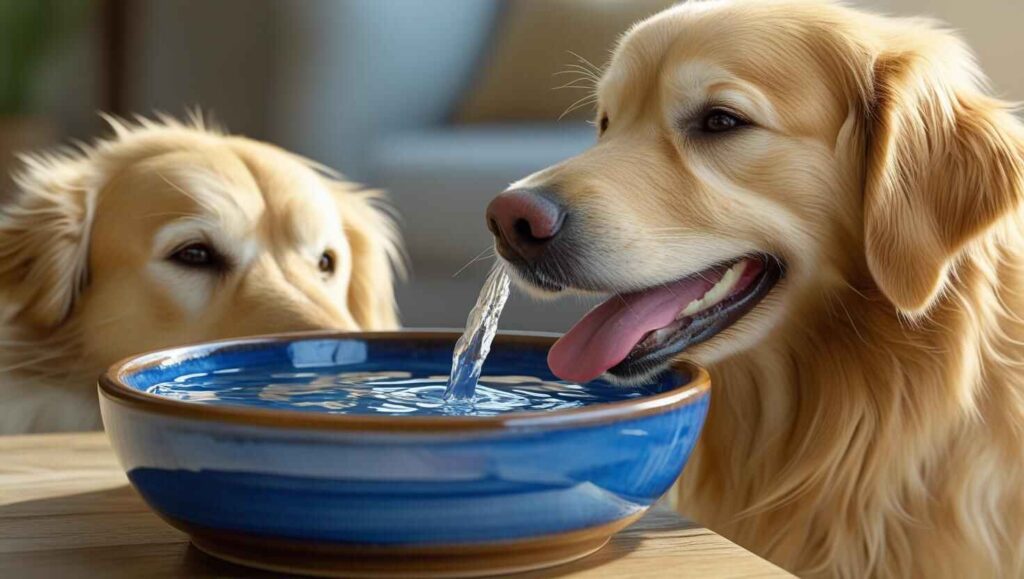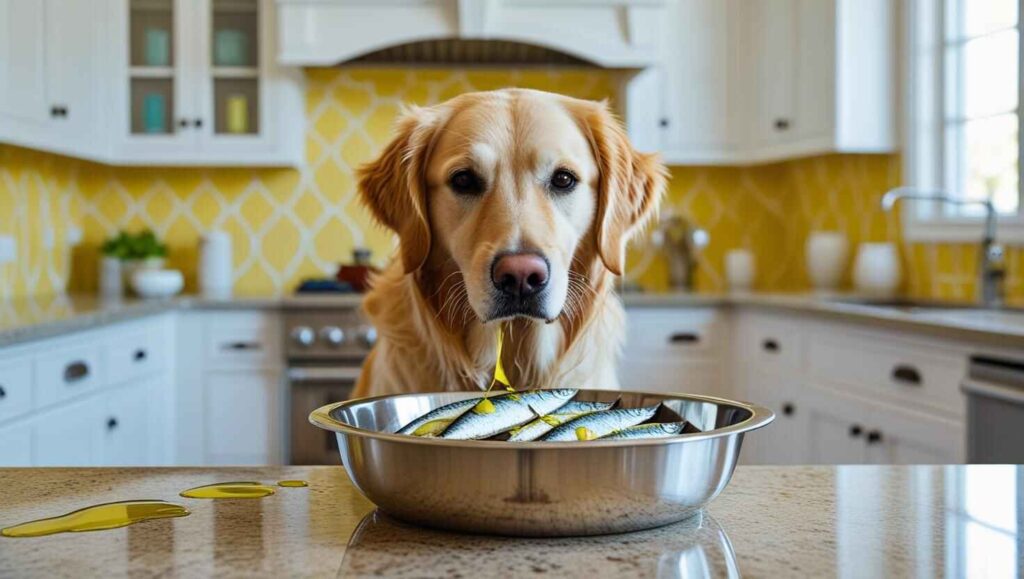🐶 Understanding Normal vs. Abnormal Panting
🐾 What Is Panting and Why Dogs Do It
Panting is your dog’s built-in cooling system—it’s how they release excess heat and keep their body temperature in check, especially since they don’t sweat like we do. Dogs don’t sweat like humans do. Instead, they release heat through their tongue and respiratory system. You’ll probably notice your dog panting after a good run, during warm weather, or when they’re feeling super excited or playful—it’s totally normal in those moments.
🔍 When Is Night Panting Considered Normal?
Some light panting during sleep might be completely normal—especially if your pup had a stimulating evening walk or the room is warm. However, excessive, loud, or distressed panting at night could signal something more serious like pain, stress, or even illness.
🌡️ 1. Heat and Overheating
💨 Bedroom Temperature and Ventilation
If your dog’s sleeping area or your bedroom gets a bit too warm at night, they might start panting as a way to cool themselves off and stay comfortable. Dogs with thick fur or short noses (like bulldogs or pugs) are more prone to heat intolerance.

Checklist to assess room conditions:
| Factor | Ideal Condition |
|---|---|
| Room Temperature | Below 75°F (24°C) |
| Ventilation | Open window or fan |
| Bedding | Breathable and not too thick |
| Location | Away from direct sunlight or heat sources |
❄️ How to Keep Your Dog Cool at Night
- Use a fan or air conditioning
- Switch to a cooling dog bed or mat
- Give fresh, cool water before bedtime
- Avoid walks or exercise too close to bedtime
🧠 2. Stress or Anxiety
😟 Common Nighttime Triggers
Just like humans, dogs can feel anxious in the dark or when alone. Separation anxiety, thunderstorms, loud noises, or changes in routine can all cause nighttime panting.

🧘 How to Calm an Anxious Dog
- Leave a piece of your clothing near their bed
- Use a calming diffuser (like Adaptil)
- Try natural supplements like CBD (only with vet approval)
- Create a consistent bedtime routine
If your dog’s anxiety doesn’t let up or seems pretty intense, it’s a good idea to reach out to your vet or a professional behaviorist for help.
💥 3. Pain or Discomfort
🔎 Signs Your Dog May Be in Pain
Dogs rarely show pain openly, but signs can include:
- Whining or yelping
- Limping or stiffness
- Panting without physical activity
- Avoiding being touched
🛌 Managing Pain at Home
You can help relieve pain by:
- Providing orthopedic bedding
- Avoiding stairs or high jumps
- Administering vet-approved medications
Never give human painkillers without consulting your vet—it can be dangerous or fatal.
❤️ 4. Underlying Health Issues
❤️ Heart Problems
Panting at night can indicate heart issues, particularly in older dogs. Symptoms may include coughing, fatigue, and exercise intolerance.
🌬️ Respiratory Conditions
Dogs with respiratory diseases like bronchitis or laryngeal paralysis may struggle to breathe normally, leading to nighttime panting.
🧪 Cushing’s Disease and Other Hormonal Disorders
Cushing’s disease causes elevated cortisol levels, leading to symptoms like:
- Excessive panting
- Increased thirst and urination
- Hair loss and weight gain
This condition requires a vet diagnosis and ongoing treatment.

⚖️ 5. Obesity and Poor Fitness
🐖 Why Overweight Dogs Pant More
Extra weight makes it harder for dogs to cool down. It also puts pressure on the heart and lungs, making panting more frequent—especially at night when laying down restricts airflow further.
🏃 Weight Management Tips
- Feed a high-protein, low-carb diet
- Ensure daily exercise (even light walks)
- Use interactive feeders to slow down meals
- Get a weight management plan from your vet
💊 6. Side Effects of Medication
💉 Common Medications That Cause Panting
Some prescriptions may cause panting as a side effect, including:
- Prednisone (a steroid)
- Thyroid medications
- Pain relief meds
📝 What You Should Do
- Check the side effects listed on the medication info
- Keep a log of symptoms
- Discuss alternatives or dosage adjustments with your vet
🧓 7. Aging and Cognitive Decline
🧠 Canine Cognitive Dysfunction Syndrome (CDS)
Senior dogs may experience confusion at night. This condition is similar to dementia in humans and may cause:
- Restlessness
- Night waking
- Increased panting due to stress
🌙 Night Waking and Disorientation
Aging dogs might wake up disoriented, leading to pacing, panting, and even barking.
Helpful tips:
- Keep a dim night light on
- Stick to a strict bedtime routine
- Consider a vet visit for supplements or medications to ease symptoms
⚖️ Pros and Cons of Night Panting: When to Worry
| Aspect | Pros | Cons |
|---|---|---|
| Cooling Mechanism | Helps regulate temperature | Can mask a health problem |
| Communication Tool | May signal anxiety or discomfort | Can disrupt sleep for owner and pet |
| Diagnostic Clue | Helps identify underlying issues | Requires careful monitoring |
🧭 How to Monitor and Track Night Panting
Tracking symptoms is crucial for a proper diagnosis.
Use this checklist:
- Frequency and duration of panting
- Room temperature and ventilation
- Diet, medication, and activity changes
- Any new behaviors or physical symptoms
A symptom diary or video recordings can be incredibly helpful during your vet visits.
🔗 External Resources for Further Reading
❓ 6 FAQs About Nighttime Dog Panting
1. Is it normal for dogs to pant while sleeping?
Light panting during sleep can be normal, especially after an active day. If it’s heavy or persistent, consult your vet.
2. Can diet affect my dog’s panting?
Yes. Overfeeding or feeding right before bed can raise body temperature and cause panting. Obesity also increases nighttime panting.
3. Should I be worried if my dog pants every night?
Yes, if it happens consistently.It might be a sign of stress, discomfort, or an underlying health problem. Try keeping a record of when it happens and check in with your vet to figure out what’s going on.
4. How can I keep my dog calm at night?
Create a cool, dark, quiet space. Use white noise, calming sprays, and avoid overstimulation before bedtime.
5. What dog breeds are more prone to night panting?
Flat-faced breeds (Pugs, Bulldogs), large breeds, and seniors are more likely to experience panting due to structural or age-related issues.
6. Can panting indicate a medical emergency?
Yes, if accompanied by drooling, vomiting, collapse, or bluish gums. Seek immediate veterinary attention.
📞 Final Thoughts: When to Call the Vet
Nighttime panting in dogs isn’t always cause for alarm—but when it’s persistent, intense, or paired with other symptoms, it could point to serious underlying issues.
👉 When to call the vet immediately:
- Sudden onset of heavy panting
- Signs of distress or pain
- Panting paired with other unusual behaviors
Don’t ignore your gut feeling—you know your dog best.
#. YOU MAY ALSO LIKE:
Can Dogs Drink Alkaline Water?
Can Dogs Eat Sardines in Olive Oil?



